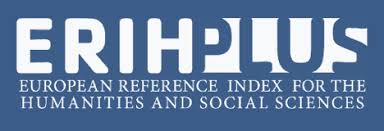№2, 2018
EVALUATION OF E-GOVERNMENT MODELS BASED ON THE MULTI-CRITERIA DECISION-MAKING MODEL
The use of ICT in government activities in different countries, the transparency and accessibility of government information, interaction between citizens and authorities, public services, citizen participation in the decision-making process, etc. characterizes e-government models. The article analyzes the concept of e-government and conducts research on the evaluation of e-government models available in the literature. Using the method of the worst-case, a multicriteria model is proposed for estimating e-government models, and empirical calculation is carried out. The main advantage of the model is the possibility of multi-criteria choice of the e-government model without performing complex calculations (pp.34-40).
Keywords:e-government, e-government maturity models, multi-criteria choice, worst-case approach.
References
- Zahran I., Al-Nuaim H., Rutter M., Benyon D. A critical analysis of e-government evaluation models at national and local municipal levels // The Electronic Journal of e-Government, 2015, vol. 13(1), pp 28-42.
- Belanger F., Carter L. The effects of the digital divide on e-government an empirical evaluation / Proceedings of the 39th Hawaii International Conference on System Sciences, 2006, vol. 4, pp. 1-7.
- Georgios L., Prodromos Y., Amalia T., Alexandros K., Vasileiadou O. Modeling a citizen-centric evaluation framework for local e-government and e-democracy // İnternational Journal of Education and Information Technologies, 2016, vol. 10, pp. 120-130.
- Alshawi S., Alalwany H. E-government evaluation: Citizen's perspective in developing countries // Information Technology for Development, 2009, vol. 15(3), pp. 193-208.
- Panopoulou E., Tambouris E., Tarabanis K. A framework for evaluating web sites of public authorities // Aslib Proceedings: New Information Perspectives, 2008, vol. 60(5), pp. 517-546.
- Irani Z., Love P.E., Elliman T., Jones S., Themistocleous M. Evaluating e-government: learning from the experiences of two UK local authorities // Information Systems Journal, 2005, vol. 15(1), pp. 61–82.
- Miranda F.J., Sanguino R., Banegil T.M. Quantitative assessment of European municipal web sites: Development and use of an evaluation tool // Internet Research, 2009, vol. 19(4), pp. 425–441.
- Mohamed D.W., Zaipuna O.Y. A secure maturity model for protecting e-government services: a case of Tanzania // Advances in Computer Science: An International Journal, 2014, vol. 3 (12), pp. 29-37.
- Supriyanto A., Khabib M. E-gov readiness assessment to determine e-government maturity phase / 2nd International Conference on Science in Information Technology (ICSITech), 2016, pp. 270-275.
- Abanumy A., Al-badi A., Mayhew P. E-government website accessibility: In-depth evaluation of Saudi Arabia and Oman // Electronic Journal of e-Government, 2005, vol. 3(3), pp. 99–106.
- Siskos E., Askounis D., Psarras J. Multicriteria decision support for global e-government evaluation // Omega: the international journal of management science, 2014, vol. 46, pp. 51-63.
- Bellman R., Zadeh L. Decision making in a fuzzy environment // Management Science, 1970, vol. 17, pp. 141-164.
- Саати Т. Математические методы конфликтных ситуаций. М.: Советское радио, 1977, 300 с.
- Rotshtein A.P. Modification of the Saaty Method for the Construction of Fuzzy Set Membership Functions / The International Conference on Fuzzy Logic and its Applications, 1997, pp. 125–130.
- Ротштейн А.П. Нечеткий многокритериальный выбор альтернатив: метод наихудшего случая // Известия РАН. Теория и системы управления, 2009, № 3, c. 51-55.





.jpg)









